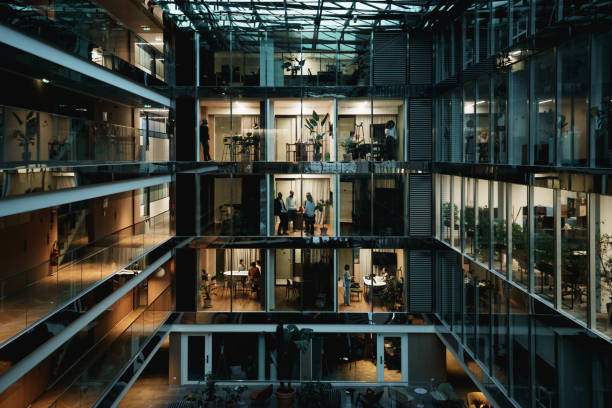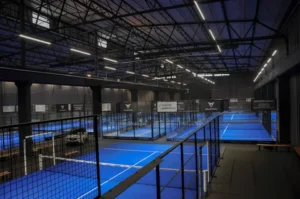UAE Strategic Diversification: Corporate Remodeling
The United Arab Emirates (UAE) has emerged as a global beacon of economic evolution. Once predominantly reliant on oil revenues, the UAE’s leadership has actively undertaken a far-reaching strategy of economic diversification aimed at securing long-term national prosperity. This initiative, known broadly as “strategic diversification,” is transforming the very DNA of Emirati business structures. Central to this transformation is the concept of corporate remodeling—a holistic rethinking of how businesses operate, invest, and grow within a rapidly evolving economic landscape.
At the core of this transformation is the rising demand for business restructuring services. With the UAE’s vision focusing on innovation, digitalization, and sustainable development, many enterprises are compelled to revisit their existing structures, strategies, and governance models. These services are becoming an essential toolkit for businesses seeking to align with national priorities and future-proof their operations amid global economic uncertainties and shifting market demands.
The Driving Forces Behind UAE’s Strategic Diversification
The push for economic diversification in the UAE is neither new nor reactionary. It is a calculated, long-term national agenda rooted in the UAE Vision 2021 and extended through UAE Centennial 2071. These frameworks seek to reduce dependency on oil, foster innovation, encourage private sector growth, and position the UAE as a hub for knowledge-based and high-value industries.
Several key forces are driving this agenda:
- Decline in Global Oil Prices: Although oil continues to play a role in the national income, fluctuating oil prices over the past decade have highlighted the risks of over-reliance on hydrocarbons.
- Technological Innovation: The digital revolution has reshaped industries across the globe. The UAE is investing in artificial intelligence, blockchain, smart cities, and fintech to drive the next phase of economic development.
- Global Competitiveness: To maintain its stature as a global business hub, the UAE must remain agile and attractive to investors. This demands a shift toward more resilient and diversified corporate models.
- Sustainability and Climate Goals: With global attention on climate change, the UAE is moving toward a greener economy, with initiatives such as the UAE Net Zero 2050 strategic initiative influencing corporate strategy and investments.
Corporate Remodeling as a Strategic Imperative
Corporate remodeling is no longer a reactive approach to crises but a strategic move to capitalize on new opportunities. It encompasses a wide range of activities, including redefining organizational structures, refining operational processes, upgrading technological capabilities, and reevaluating investment portfolios.
For UAE-based enterprises, remodeling often means adapting to a more innovation-driven, agile, and sustainable business model. This is particularly critical for family-owned businesses, SMEs, and large corporations undergoing generational transitions or market repositioning.
The increasing complexity of this process has amplified the demand for business restructuring services. These services help companies navigate legal, financial, operational, and cultural transformations in alignment with the broader national vision. Consultants and advisors specializing in this domain bring deep expertise, guiding firms through mergers, acquisitions, divestitures, and digital transformation.
Sector-Specific Impacts and Opportunities
The UAE’s strategic diversification touches virtually every sector. However, the impacts are more pronounced in some industries, prompting unique remodeling strategies.
1. Real Estate and Construction
While the real estate sector remains pivotal, there’s a clear pivot toward sustainable urban development and smart city initiatives. Developers are incorporating green building practices, energy-efficient designs, and smart technologies to meet regulatory requirements and cater to evolving consumer expectations. This shift often necessitates internal restructuring and adoption of new technologies, best facilitated through tailored business restructuring services.
2. Financial Services
The UAE is positioning itself as a global fintech hub. Traditional financial institutions are remodeling their operations by embracing blockchain, AI, and digital banking. Simultaneously, regulatory reforms and increased competition require a reassessment of risk models, governance frameworks, and customer engagement strategies.
3. Energy and Renewables
With the launch of massive renewable projects like the Mohammed bin Rashid Al Maktoum Solar Park and Barakah Nuclear Power Plant, energy companies are diversifying beyond oil and gas. Remodeling in this sector includes investment in clean technologies, strategic partnerships, and workforce upskilling.
4. Tourism and Hospitality
Expo 2020 Dubai showcased the UAE’s capacity to attract global visitors. Now, with a renewed focus on cultural tourism, eco-tourism, and wellness tourism, hospitality providers are revamping service offerings, investing in sustainable infrastructure, and leveraging digital platforms to enhance guest experiences.
Governmental Support and Regulatory Reform
One of the defining strengths of the UAE’s corporate remodeling landscape is robust governmental support. Strategic plans, free trade zones, investor-friendly policies, and regulatory reforms have made business transformation more accessible.
The UAE Ministry of Economy and local economic development departments offer grants, incentives, and training programs to assist companies in restructuring. Meanwhile, the introduction of the Commercial Companies Law, which allows 100% foreign ownership in certain sectors, has opened doors for new entrants and collaborations.
Moreover, the UAE’s proactive approach to digital governance—evident in initiatives like the UAE Pass and smart licensing—makes it easier for businesses to undergo remodeling with reduced bureaucratic friction.
Role of Leadership and Organizational Culture
Effective corporate remodeling requires more than just process overhaul; it demands visionary leadership and a shift in organizational culture. UAE-based companies are increasingly investing in leadership development programs, executive education, and change management strategies to foster resilience and adaptability.
Boardrooms are being reshaped with a greater emphasis on ESG (Environmental, Social, and Governance) principles. There is a growing trend of appointing Chief Transformation Officers and innovation leads to drive internal change and external competitiveness.
Business restructuring services are critical in supporting leadership during such transitions. These services help identify skill gaps, facilitate cultural alignment, and implement governance frameworks that support long-term success.
Challenges in Corporate Remodeling
Despite the momentum, corporate remodeling in the UAE is not without its challenges:
- Resistance to Change: Traditional business owners, particularly in family-run enterprises, may be hesitant to relinquish control or adopt new business models.
- Talent Acquisition and Retention: As industries evolve, the need for highly skilled talent in areas like AI, data science, and green energy intensifies.
- Global Economic Volatility: Geopolitical tensions and global recessions can derail strategic initiatives or delay investment decisions.
Overcoming these challenges requires a balanced approach—leveraging expert advice, engaging stakeholders at all levels, and maintaining a clear focus on long-term objectives.
Future Outlook
The UAE’s vision for the next 50 years is unambiguously ambitious. As the country moves toward becoming a global innovation hub, the need for corporate remodeling will only intensify. Companies that invest in transformation today will be better positioned to lead tomorrow.
There is a rising ecosystem of business restructuring services firms in the UAE, ranging from global consultancies to niche local advisors, offering tailored solutions across sectors. These firms will play a pivotal role in supporting national goals, enabling businesses to become more resilient, innovative, and globally competitive.
Conclusion
Strategic diversification in the UAE is not merely a national initiative—it is a clarion call for businesses to evolve. Corporate remodeling, supported by comprehensive business restructuring services, is the engine that will drive this transformation. For companies operating in the UAE, now is the time to embrace change, harness innovation, and align with the country’s dynamic vision for the future.
By adapting to new paradigms and leveraging expert support, UAE-based businesses can position themselves at the forefront of regional and global markets—ready to navigate challenges and seize emerging opportunities in a rapidly shifting world.














2 comments